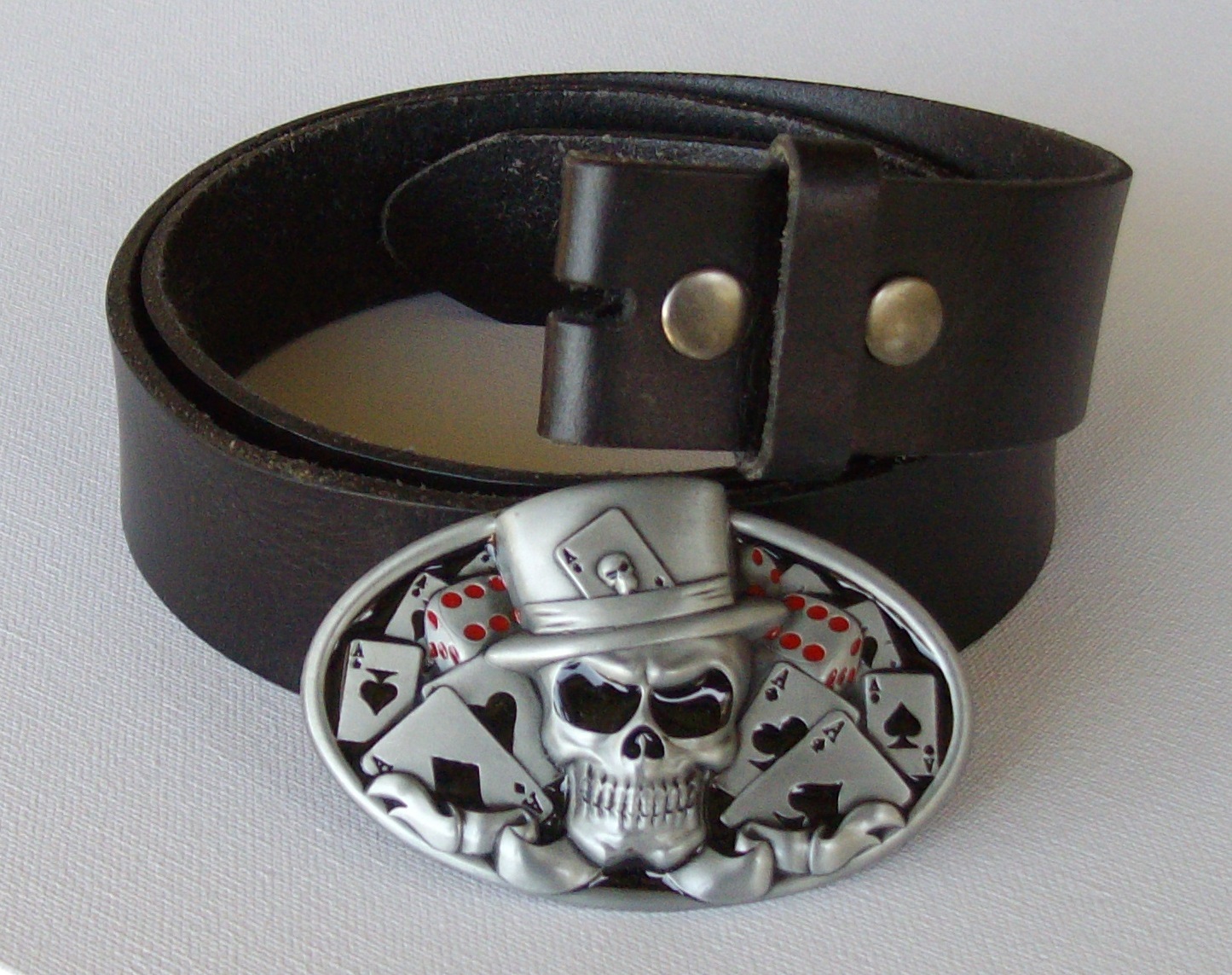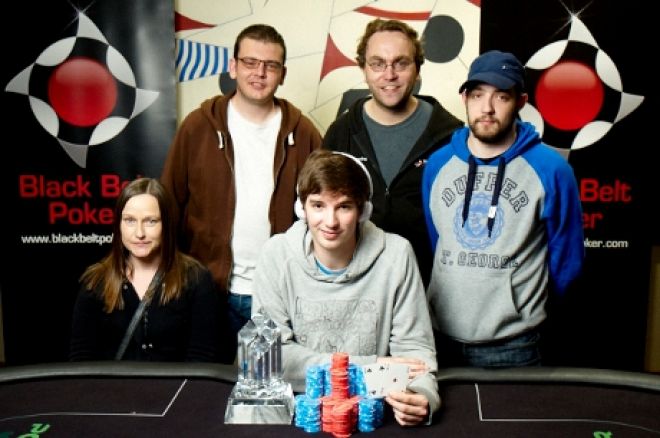Black Belt Poker
The words Black Belt Poker could be heard more and more frequently in recent poker-themed conversations, as the company, and indeed the idea behind it, became increasingly exciting and popular over the past few months. Neil Channing is the man behind the idea, and no person can better explain the concept than the former Irish Open champion himself. He, and one of his “students”, so to speak, Joel Ettedgi, spoke to CardPlayer about the birth of Black Belt Poker, the grading process, and the hunt for a team to become ambassadors for the company. Part 1 of this interview comes at a very exciting time for both Channing and Ettedgi as the selected sponsored pros are due to be announced on The Poker Show live on Monday.
Rebecca McAdam: Neil, do you want to tell me where the idea came for Black Belt Poker in the first place.
Are you ready to rise through the ranks and achieve the black belt in poker? Play the daily and weekly freerolls to get awarded your White, Yellow and Blue belts. You can ultimately qualify for the monthly Black Belt Invitational where you can end up winning one of 100 tickets to the huge €50,000 Ultimate Sweat tournament! The words Black Belt Poker could be heard more and more frequently in recent poker-themed conversations, as the company, and indeed the idea behind it, became increasingly exciting and popular. The inaugural Black Belt Poker Live was won by Paul Pham, who picked up $15,000 from his initial $220 investment after defeating a field of 300 players at London’s Victoria Casino. Black Belt Poker founder Neil Channing announced yesterday that, as of Friday February 28th, the online poker site will cease to exist. After months of losing money Channing has decided now is the right time to pull the plug.
Black Belt Pokemon Emerald
Neil Channing: It came from a realisation in 2007 that I was doing way too many things that were to do with poker that weren’t involving me in playing poker. I was writing a magazine article, doing my diary for The Hendon Mob, always being asked to do private coaching, occassionally asked to work for training video sites, doing boot camps and doing corporate poker nights. A friend of mine suggested that I become his manager about the same time that an agency offered to manage me. I was backing three guys in live tournaments at the time and I saw what Bad Beat had done and started thinking of a way to formalise and organise everything. In 2008, after the Irish Open I began talking to my sponsors, Poker Verdict, about working with them on athe project and having an office to basically organise my life better and monetise some of the things I was doing.
Eventually I decided a new brand would work better and in Vegas I got thinking about branding, training and education, and about the discipline that poker teaches you — that’s when the martial arts connection came in.


Once I bought the domain I discussed things with a couple of smart guys that I play with in the Vic [Grosvenor Victoria Casino] and I got them and Nik Persaud involved. I always thought of him as great for training and mentoring and as someone who had more credibility than me, in some ways, with the young players we saw as our main market.
The idea of hanging the whole thing on a social networking site I loved, and Javid Ghazi, our site architect, had already been working on the software and knew us from poker.
RM: When did you hear about Black Belt Poker Joel?
JE: I had heard that it was in the process of being developed a while ago, but actually I only spoke to Nik indepth about it a couple of weeks before the grading began. I’ve known Nik for many years through the poker circuit and he knows that I’ve been sponsored online for a while. However the prospect of having a live sponsor is a much bigger attraction.
RM: Can you tell me about the grading process?
NC: It was always my intention that we’d get a poker skin and Black Belt Poker will launch as a skin of iPoker in August. The reason people will want to play on our site is that at the lower levels (White, Yellow, Orange, and Green Belt), people will get the opportunity to interact with pros, asking advice on hands via messaging at one end, up to one-on-one mentoring at the other extreme, they’ll get to access areas of the site where more advanced strategy articles will appear and discussion will take place, and they’ll benefit from live and video training.
At the other end of the scale (Blue,Brown and Black), players will be rewarded by generous sponsorship packages. Players will not receive rakeback but Blue Belts will get $, Browns $4,000, and Blacks $10,000 a month in live tournament entries. These sponsored pros will represent us becoming the faces of the site, and will provide content, mentoring, and training. The Black Belts will get equity in the company.

RM: What do you think will be the result of this — generally better informed players or indeed a better way forward for online poker?
NC: The whole idea of our site is that it’s aspirational and we want people to feel they can work their way from White to Black. At the start I felt there should be some pros in place for people to “shoot at” (aspire to), and we tried to think who they would be. In the end I came up with the (genius) idea of The Grading in order to allow the Brown and Blue Belts to effectively choose themselves. Generally speaking people will earn points and work themselves slowly up through the grades but occasionally they’ll be a “fast track” grading month to allow them instant promotion.
We’ve definitely lost a lot of money so far on this grading. We will nowhere near regain the $160k in sponsorship from the rake we earn during the month, but we’re in it for the long-haul and we have received some excellent goodwill and publicity while assembling a strong team of sponsored pros.
RM: What made you choose the original 50?
NC: We had a drinks launch party at The Grouch club and Nik and I trawled our phones to get 50 suitable guys. I’ve personally backed 56 different players in tournaments at some stage in the last few years and they were all invited to apply. With a bit of word of mouth and some applicants through the site we ended up with around 120 who said they wanted to do it.
RM: What are the requirements to become a sponsored pro other than playing a lot of poker?
Black Belt Pokemon Shield
JE: There are lots of requirements that don’t just come down to how well you do on the virtual felt. The whole idea of Blackbelt poker is to build a brand and the “pros” will be the ambassadors of the company. So this involves communicating with other pros and graders via the Blackbelt Poker site, writing articles on hand analysis and other topics to help with the poker education. Also talking to the media, and introducing others to the Black Belt community.
NC: Basically we’re scoring The Graders on four criteria: 1 — Profitability. We want a nice steady upward curve and aren’t looking for crazy gamblers or chasers. The stakes are four times as big in week four as week 1, and the sample is small, so this is no more important than the other four criteria.
2 — Effort. We ask Graders to play a minimum of six hours on four tables, five days a week, to attend a workshop on one day a week, and to participate in the community.
Phil Hellmuth's Black Belt Poker Course
3 — Willingness to learn and improve. Graders are expected to be open-minded, flexible, and have the humility to drop down in stakes, realise they’re not neccessarily the finished product, and be prepared to be criticised.
4 — Willingness to share their experience within the community by blogging, liasing with media, speaking in front of the group at workshops and sharing ideas and thoughts on the Black Belt Poker site.
RM: So this team of sponsored pros is nearly assembled then?
Black Belt Pokemon Sword


NC: On Monday Nik persaud, myself and some of the other guys who are involved will sit down and select our eight Brown Belts from the 31 players who made it through The Grading month. We’ll also pick around 15 Blue Belts. The Graders will be sitting by their phones and I’ll be calling the eight lucky ones live on The Poker Show on Monday night. They’ll be flying to Vegas on June 14th.
Check back tomorrow for Part II where Channing speaks about his workshops and how the whole process has been going, and Ettedgi discusses his experience so far and makes his final plea.